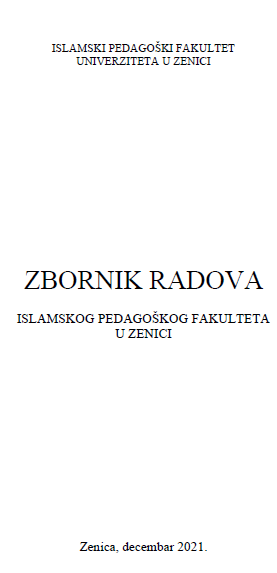POGLEDI NA IDENTITET U KRETANJU OD „MENE“ DO „NAS“ I OD „JESTE“ KA „TREBA“
VIEWS ON IDENTITY IN MOVING FROM "ME" TO "US" AND FROM "IS" TO "SHOULD"
Author(s): Melisa ZukićSubject(s): Individual Psychology, Developmental Psychology, Psychology of Self, Politics and Identity, Identity of Collectives
Published by: Islamski pedagoški fakultet Univerziteta u Zenici
Keywords: identity; reflexivity; strong identity theory; weak identity theory; transnational identity; identity crisis;
Summary/Abstract: The paper presents sociological views on identity from terminological ambiguity to theoretical and functional openness in accordance with the needs of the individual and the society that is changing and evolving. From an interactionist point of view, identity is formed through communication and action; in the structuralist sense, it represents the imprint of social structure, while the reflexive hypothesis assumes the self-production of identity through rational action. According to the formative hypothesis identity is a constant renewal of life as opposed to forms of materialized culture. Late modernity is characterized by the delegitimization of diversity factors (gender, religion, and social status). Identity policies are presented by a weak identity theory and a strong identity theory through the strengthening of the dominant identity or through the search for a new identity. A strong identity theory is an anchored identity based on rigid identity sequences and marked by xenophobia and intolerance. Protecting identity through isolation, while avoiding comparison with others in communicative interaction, leads to an anchored identity which faces difficulties while coping with the changes in a developing society, indicating that the time of an anchored identity is over. Understanding identity as an unfinished process indicates an identity crisis that does not necessarily have to be shock, frustration, and a sense of hopelessness but may be a crisis of identity growth and modification. The process of identification and emergence of identity as a constant transformation can be presented as a continuum of constant adaptation, modification, and growth, leading to new levels / layers / circles of identity and opportunities for the continuation of the identity development process.
Journal: Zbornik radova Islamskog pedagoškog fakulteta u Zenici
- Issue Year: 2021
- Issue No: 19
- Page Range: 523-539
- Page Count: 17
- Language: Bosnian

